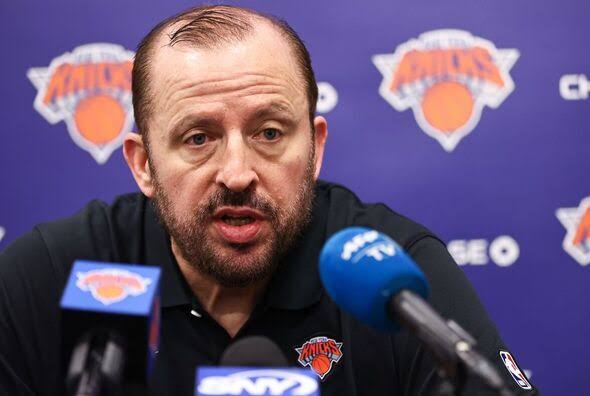Tom Thibodeau’s departure from the New York Knicks, which occurred in February 2024, marked a significant turning point for both the team and the coach. Thibodeau, who had been at the helm of the Knicks since the 2020-2021 season, was known for his defensive acumen and demanding coaching style. His exit from the Knicks was the culmination of several factors that had been brewing over the past seasons.
When Thibodeau took over the Knicks, the team was coming off several years of mediocrity. His arrival was seen as a hopeful turn towards stability and competitiveness. In his first season, he led the Knicks to the playoffs for the first time in eight years, earning him the NBA Coach of the Year award. His defensive schemes and intense work ethic seemed to rejuvenate a franchise that had struggled to find success.
However, the following seasons were marked by inconsistency. Despite some promising individual performances and sporadic successes, the team struggled to find a cohesive identity. Thibodeau’s coaching style, which emphasized heavy defensive schemes and high-intensity practices, started to wear on players. Critics pointed out that his methods, which had worked in previous stops like Chicago and Minnesota, were not always translating to success with the Knicks. The team’s defensive prowess did not always translate into offensive efficiency, and the Knicks failed to advance past the first round of the playoffs in the subsequent years.
Tensions began to rise between Thibodeau and the front office, particularly regarding roster decisions and player development. The Knicks’ management had a vision for the team that involved a blend of veteran leadership and young talent. Thibodeau, known for his preference for established players and a short rotation, was sometimes at odds with this strategy. Issues such as the uneven development of young players like RJ Barrett and Obi Toppin highlighted the growing disconnect between Thibodeau’s approach and the team’s long-term goals.
Moreover, the Knicks’ performance in the 2023-2024 season was underwhelming. Despite having a roster with significant talent, the team struggled to maintain a consistent level of play. Injuries and internal conflicts further exacerbated the situation. Reports of locker room discord and dissatisfaction with Thibodeau’s leadership style began to surface, painting a picture of a coach whose methods were no longer resonating with the players or aligning with the team’s strategic vision.
The decision to part ways with Thibodeau was ultimately driven by a combination of on-court results and off-court dynamics. The Knicks’ management decided that a change was necessary to rejuvenate the team and realign with their strategic objectives. The transition period was challenging, as finding a replacement who could address the team’s needs and implement a new direction was crucial.
In conclusion, Tom Thibodeau’s departure from the New York Knicks was a multifaceted issue involving coaching philosophy, team dynamics, and performance. While Thibodeau brought a strong defensive mindset and had initial success with the Knicks, the subsequent seasons revealed cracks in the approach that led to his exit. The Knicks now face the task of finding a new leader who can guide them back to prominence while aligning with both the players’ development and the organization’s long-term vision.
